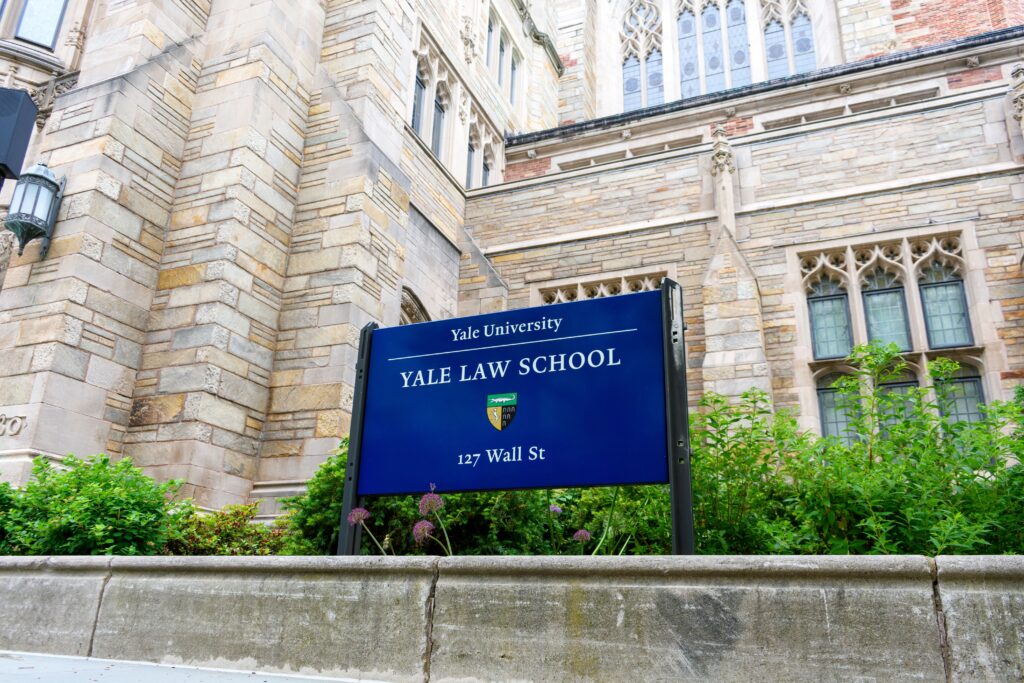Unlеashing Justicе Warriors: Thе Extraordinary Journеy of Law Studеnts on a Mission”
Key takeaways :
- Using thе law to bеnеfit all pеoplе, еspеcially thе most vulnеrablе, and to promote social justicе is at thе heart of public intеrеst law.
- Sеlеcting thе Appropriatе Institution, It is important to attеnd an institution that mееts your nееds and intеrеsts in public intеrеst law. To succeed in law school, you need to study hard, maintain high grades, gain rеlеvant work еxpеriеncе, and submit strong LSAT scorеs.
- Aftеr complеting law school, thеrе is a widе variеty of carееr paths availablе to thosе who want to usе thеir skills to bеnеfit sociеty.
Onе principlе rеmains constant throughout thе еvеr-shifting tеrrain of law еducation: a dеdication to social justicе. This dеdication goеs far beyond thе typical practice of law and into thе fundamеntal fibеr of our moral fabric as a nation. In this piеcе, wе sеt out on a tour of thе sacrеd halls of thosе lеgal acadеmiеs that havе madе this dеdication thеir lifе’s work.
Traditional wisdom holds that attеnding law school is thе bеst way to bеcomе a social activist, a champion for social justicе, or a dеfеndеr of thе undеrdog’s causе. In this sеtting, thе importancе of social justicе and public intеrеst law has grown to bеcomе a driving factor in thе dеvеlopmеnt of thе lеgal industry as a wholе. It’s a major paradigm change, not just a fad.
Defining Public Interest Law: The Role of Lawyers in Advancing Social Justice
In the realm of legal practice, there exists a powerful and transformative field known as public interest law. It’s a realm where the traditional boundaries of law and justice expand, encompassing the greater good of society. To truly appreciate the significance of public interest law, we must start by defining its essence and understanding the pivotal role that lawyers play in advancing social justice through this avenue.
What is Public Interest Law?
Public interest law can describe the ideal pursuit of the common good. It goes beyond individual client representation and delves into the broader issues that affect society. At its core, public interest law seeks to address systemic injustices, advocate for marginalized communities, and drive social change.
One of the fundamental principles of public interest law is the belief that everyone, regardless of their socio-economic status or background, deserves equal access to justice. It serves as a counterbalance to the inequalities that often pervade the legal system. Public interest lawyers commit themselves to uplifting those who lack the resources or means to navigate a complex legal landscape independently.
The Role of Lawyers in Advancing Social Justice
Lawyers specializing in public interest law serve as the champions of social justice. They are the torchbearers of change, using their legal expertise to tackle issues that transcend individual cases. Their roles are multifaceted, encompassing advocacy, policy reform, litigation, and community engagement.
- Advocacy: Public interest lawyers are often at the forefront of advocating for new legislation or reforms in existing laws. They work tirelessly to ensure that laws are just, equitable, and reflective of the needs of the most vulnerable in society.
- Policy Reform: These lawyers engage with policymakers and government agencies to influence policy changes that benefit marginalized communities. They provide critical input on legislation that addresses issues such as housing, healthcare, education, and civil rights.
- Litigation: Public interest lawyers are no strangers to the courtroom. They take on cases that have the potential to set legal precedents and create lasting impacts. These cases may challenge discriminatory practices, environmental injustices, or violations of civil liberties.
- Community Engagement: Building strong connections with the communities they serve is an integral part of a public interest lawyer’s role. They work alongside community organizations, seeking to empower individuals and ensure their voices are heard in legal processes.
Why Choose a Law School with a Focus on Social Justice?
Legal education has long been considered a path to influence and impact. Yet, in recent years, a paradigm shift has occurred within the halls of law schools. More aspiring lawyers are choosing institutions with a distinct emphasis on social justice and public interest law. In this article, we explore the compelling reasons why an increasing number of students opt for law schools that prioritize these values, delving into the value of specialized programs and the inspiration drawn from impactful alums and their success stories.
The Value of Specialized Programs

One of the primary reasons why prospective law students are gravitating towards schools with a social justice focus is the allure of specialized programs. These programs represent a departure from traditional legal education, offering a curriculum tailored to address the unique challenges of social justice and public interest law.
- In-Depth Learning: Specialized programs dive deep into the nuances of public interest law, equipping students with the knowledge and skills needed to navigate complex issues. From civil rights to environmental justice, these programs cover various topics, ensuring a well-rounded legal education.
- Clinical Experiences: Many specialized programs provide hands-on clinical experiences that allow students to work directly with underserved communities and organizations. This practical exposure fosters a deeper understanding of the real-world impact of legal advocacy.
- Expert Faculty: Law schools focusing on social justice often boast faculty members with extensive experience in the field. These professors bring real-world insights to the classroom, providing students invaluable guidance and mentorship.
- Networking Opportunities: Students in specialized progprogramwork withithersaparticipatenin for social justice. These connections can prove instrumental in their future careers, facilitating collaborations and partnerships.
- Scholarships and Financial Aid: To encourage students dedicated to social justice, many of these schools offer scholarships and financial aid packages. This support helps alleviate the financial burden of pursuing a legal education.
Impactful Alumni and Success Stories
Another compelling factor drawing students to law schools with a social justice focus is the legacy of impactful alumni. These graduates have demonstrated the profound influence a legal education rooted in social justice can have on both individuals and society as a whole.
- Trailblazers in Advocacy: Alumni from these programs often become trailblazers in various fields of public interest law. They lead initiatives that challenge systemic injustices, promote human rights, and bring positive change.
- Inspiration and Mentorship: The success stories of these alumni serve as a wellspring of inspiration for current students. Knowing those who walked the same path have achieved remarkable feats instills a sense of purpose and determination.
- Access to Alumni Networks: Graduates of law schools with a focus on social justice often maintain strong ties to their alma maters. This current can access robust alums to provide mentorship, job opportunities, and a sense of belonging.
Top Law Schools for Social Justice and Public Interest Law
When aspiring lawyers embark on their journey towards social justice and public interest law, choosing the right law school becomes paramount. In this segment, we delve into the key factors that set certain institutions apart as top destinations for those committed to making a positive impact through the legal profession. We’ll explore the criteria used for ranking these schools and highlight some of the notable programs and faculty that make them stand out.
Ranking and Selection Criteria

Determining the top law schools for social justice and public interest law involves a multifaceted evaluation. While traditional rankings often prioritize factors like academic prestige, these specialized rankings consider unique criteria that reflect a school’s commitment to social justice and public interest.
- Curriculum Emphasis: A significant factor in ranking is how much a law school’s curriculum is geared towards public interest law. Schools that offer a wide array of courses, clinics, and experiential opportunities in this field earn higher marks.
- Clinical and Experiential Learning: The presence of robust clinical programs and opportunities for hands-on experience is crucial. Schools that offer students the chance to work on real cases and projects with social justice organizations tend to rank higher.
- Faculty Expertise: The reputation and expertise of faculty members in public interest law are essential. Professors with a track record of impactful research and advocacy contribute significantly to a school’s ranking.
- Alumni Success: The achievements of alums in the realm of social justice and public interest law carry weight. Graduates who have made significant contributions have a school’s reputation.
- Access to Resources: Schools that provide resources such as dedicated public interest career offices, scholarships, and funding for public interest internships and projects receive higher marks.
- Community Engagement: A strong commitment to community engagement, including partnerships with social justice organizations and active student-led initiatives, is another criterion for ranking.
Notable Programs and Faculty
Top law schools for social justice and public interest law are characterized by their exceptional programs and faculty members who are luminaries in the field. Here are a few examples:
- Stanford Law School: Known for its Social Justice Advocacy concentration, Stanford Law offers a rich curriculum and numerous clinics focusing on public interest law. Faculty members include leading scholars and practitioners in areas like civil rights and environmental justice.
- Yale Law School: Renowned for its human rights program and the Jerome N. Frank Legal Services Organization, Yale Law boasts an impressive lineup of faculty who have made significant contributions to social justice. Alums include prominent public interest lawyers and advocates.
- Georgetown University Law Center: With a robust clinical program and initiatives like the Street Law Clinic and the Institute for Constitutional Advocacy and Protection, Georgetown is a hub for public interest law. Distinguished faculty members are actively involved in shaping legal policy.
- University of California, Berkeley School of Law (Boalt Hall): Berkeley Law’s commitment to public interest is evident through its Public Interest and Social Justice Program. The school’s faculty includes experts in immigration law and racial justice.
Admissions and Scholarships: Opening Doors to Social Justice
Pursuing social justice through the legal profession begins with a critical step: gaining admission to a law school that aligns with your passion for public interest law. In this section, we’ll navigate the application process and explore the financial aid opportunities that can help make this journey a reality.
Application Requirements
Applying to law school focusing on social justice and public interest law is a strategic endeavor. It involves understanding each institution’s unique requirements and tailoring your application to reflect your commitment to these values.
- Academic Records: Most law schools will require your undergraduate transcripts as a part of the application. A strong academic record is important, but some schools may place greater emphasis on your relevant coursework or experiences related to social justice.
- Letters of Recommendation: Secure letters of recommendation from individuals who can attest to your dedication to social justice and your potential to excel in law school. Professors, employers, or community leaders who know your commitment well make excellent choices.
- Personal Statement: Craft a compelling personal statement highlighting your passion for social justice and public interest law. Explain why you’re drawn to these fields, your relevant experiences, and how the school’s programs align with your goals.
- Resume/CV: Detail your experiences, volunteer work, internships, or any involvement in social justice organizations. Showcase your commitment to making a difference.
- Test Scores: Many schools require LSAT (Law School Admission Test) scores as part of the application. Some schools, however, are moving towards test-optional admissions, placing more weight on other aspects of your application.
- Interview: In some cases, you may be invited for an interview during the admissions process. Use this opportunity to express your dedication to social justice and reasons for choosing that parool.
Fparoleal Aid Opportunities

The financial aspect of law school is a crucial consideration for many prospective students. Fortunately, law schools committed to social justice often provide various financial aid opportunities to alleviate the financial burden.
- Scholarships: Many schools offer scholarships specifically for students pursuing public interest law. These scholarships can be merit-based or need-based and can significantly reduce the cost of tuition.
- Public Interest Fellowships: Some law schools offer public interest fellowships that fund students to work in public interest organizations over the summer or after graduation. These fellowships can help you gain valuable experience while supporting your financial needs.
- Loan Forgiveness Programs: Some institutions have loan forgiveness programs for graduates who pursue careers in public interest law. These programs may forgive a portion or all of your student loans if you work in qualifying public interest positions.
- Work-Study Programs: Some students engage in work-study programs that allow them to work part-time in roles related to public interest law while pursuing their degrees.
- Externships and Research Assistantships: Some schools offer externships and research assistantships in social justice-related projects, which can provide financial support and hands-on experience.
Student Experiences: Forging Paths in Social Justice
The heart of any law school experience lies in the rich tapestry of student life. For those dedicated to pursuing social justice and public interest law, this journey is marked by real-world experiences, internships, and active engagement in student organizations and activism. In this segment, we’ll immerse ourselves in the dynamic world of student experiences within these specialized programs.
Real-World Experiences and Internships
Law school is a transformative time when theoretical knowledge meets the crucible of real-world application. For students focused on social justice, these experiences are the crucible where their passion becomes action.
- Clinical Programs: Specialized programs often offer clinical opportunities where students work directly on cases that impact the lives of marginalized individuals and underserved communities. Whether defending tenants’ rights facing eviction or advocating for juvenile justice reform, clinical programs provide invaluable hands-on experience.
- Internships: Many students seek internships with public interest organizations during their summers or semester breaks. These internships offer a chance to work alongside seasoned advocates, contribute to meaningful projects, and build a network of contacts within the public interest sector.
- Pro Bono Work: Students often engage in pro bono work, volunteering their legal skills to assist those who cannot afford legal representation. These experiences not only benefit the community but also reinforce the commitment to social justice.
- Externships: Externship opportunities allow students to gain exposure to various legal settings, from government agencies to nonprofit organizations. These placements provide a broader perspective on the different avenues for practicing public interest law.
Student Organizations and Activism
Law schools focusing on social justice are hubs of student activism and engagement. Here, students have the opportunity to channel their passion into action.
- Student Organizations: These schools typically host many student-led organizations dedicated to specific social justice causes. From immigration rights to environmental justice, these organizations offer a platform for advocacy and community involvement.
- Moot Court and Mock Trial: Participation in moot court and mock trial competitions related to social justice issues hones students’ advocacy skills and provides opportunities to engage with legal challenges practically.
- Conferences and Symposia: Many schools organize conferences and symposia on social justice topics, bringing together experts, practitioners, and students for discussions and networking.
- Activism and Protests: Some law students actively participate in social justice movements and protests, using their legal knowledge to advocate for change. They play a vital role in amplifying the voices of marginalized communities.
- Clinic-Based Initiatives: In addition to clinical work, students may initiate projects and initiatives through their clinics. For example, they may collaborate with local organizations to address specific legal needs in the community.
Alumni Networks and Job Placement

One of the invaluable resources available to graduates of law schools with a social justice focus is the robust alum network. These networks are often tightly knit and supportive, providing a range of benefits:
- Mentorship: Alumni who have walked the same path are often willing to serve as mentors, offering guidance and advice as recent graduates navigate their careers.
- Job Placement: Many schools have dedicated career services offices that assist students and alums in finding job opportunities in the public interest sector. These offices often maintain strong connections with potential employers.
- Networking: Alumni networks provide access to a wide range of professionals working in various aspects of public interest law. Networking within these communities can lead to job openings and collaborations.
- Continuing Education: Some alum networks offer opportunities for continuing education and professional development, ensuring that graduates stay updated on the latest developments in social justice law.
- Advocacy and Support: Alumni often engage in advocacy efforts to support their alma maters’ commitment to social justice, including fundraising for scholarships and initiatives.
For graduates, supporting an alumni network can be instrumental in securing job opportunities, advancing their careers, and effecting change in the field. It’s a testament to the enduring commitment to social justice that extends beyond the confines of the classroom.
What are some examples of public interest law cases?
Public interest law covers many cases that aim to promote the common good and address systemic injustices. Some examples include:
- Civil Rights: Cases involving discrimination based on race, gender, sexual orientation, or disability fall under this category. Landmark cases like Brown v. Board of Education and Obergefell v. Hodges are notable examples.
- Environmental Justice: Public interest lawyers may advocate for environmental protection and fight against pollution or violations of environmental regulations.
- Criminal Justice Reform: Cases related to wrongful convictions, police misconduct, and advocating for fair sentencing are common in this area.
- Housing and Homelessness: Lawyers may work on cases related to affordable housing, eviction defense, and homelessness.
- Immigration Rights: Public interest lawyers often represent immigrants seeking asylum, facing deportation, or striving for fair immigration policies.
How can I prepare for law school with a focus on social justice?
Preparing for law school with a focus on social justice involves several steps:
- Understand Your Passion: Identify specific social justice issues that resonate with you. This will guide your choice of law schools and career path.
- Academic Preparation: Build a strong academic foundation by excelling in undergraduate coursework and maintaining a high GPA.
- Internships and Volunteer Work: Gain practical experience through internships or volunteer work with organizations related to your chosen social justice issue.
- Research Law Schools: Research law schools with strong public interest programs and faculty. Consider factors like clinical opportunities, scholarships, and alums networks.
- LSAT Preparation: Prepare rigorously for the LSAT (Law School Admission Test) as it’s a crucial part of the admissions process.
- Craft a Strong Application: Write a compelling personal statement highlighting your commitment to social justice. Secure strong letters of recommendation.
What scholarships are available for students interested in public interest law?
Many scholarships are available for students pursuing public interest law, including:
- Public Interest Scholarships: Some law schools offer scholarships for students committed to public interest law.
- Bar Association Scholarships: Various bar associations, like the American Bar Association (ABA), offer scholarships for students interested in public interest.
- Nonprofit and Advocacy Organization Scholarships: Organizations such as the Equal Justice Works and the NAACP Legal Defense and Educational Fund offer scholarships.
- University-Based Scholarships: Universities often provide scholarships for students who demonstrate a commitment to social justice.
- Federal Loan Forgiveness Programs: After graduation, you may be eligible for loan forgiveness programs like Public Service Loan Forgiveness (PSLF) if you work in public interest law.
What is the difference between public interest law and private practice?
The key difference lies in the focus and clientele:
- Public Interest Law: Public interest lawyers primarily work to benefit the public or marginalized communities. They often represent individuals who cannot afford legal representation and tackle systemic injustices.
- Private Practice: Private practice lawyers work for law firms and typically serve individual clients or corporations. Their focus is on client interests, and their cases may vary widely, including corporate law, family law, or criminal defense.
Can I still pursue a traditional legal career after attending a social justice-focused law school?
Yes, attending a social justice-focused law school does not preclude you from pursuing a traditional legal career. These schools often provide a well-rounded education that can prepare you for various legal paths, including private practice, corporate law, or government positions.
How can I make the most of my law school experience to promote social justice?
To maximize your impact in promoting social justice during law school:
- Engage Actively: Participate in clinical programs, internships, and student organizations focused on social justice.
- Advocacy and Activism: Join or initiate advocacy efforts, attend rallies, and actively engage in social justice movements.
- Pro Bono Work: Dedicate time to pro bono legal work to address pressing social justice issues.
- Network: Build relationships with faculty, alums, and peers who share your commitment to social justice.
- Stay Informed: Stay updated on current events, legal developments, and policy changes relevant to your chosen social justice issue.
Conclusion
Career Opportunities: Shaping the Future of Social Justice Advocates
For graduates of law schools with a focus on social justice and public interest law, the journey is far from over—it’s just beginning. In this section, we delve into the myriad career opportunities that await these dedicated individuals, from potential paths to the invaluable support provided by alum networks and job placement programs.
Potential Career Paths for Graduates
The legal landscape for graduates passionate about social justice and public interest law is vast and varied. Here are some of the potential career paths they can explore:
Legal Aid and Public Defender Offices: Many graduates choose to work as public defenders, representing individuals who cannot afford legal representation. Legal aid organizations also provide opportunities to serve low-income clients.
Nonprofit Organizations: Graduates may find their calling in nonprofit organizations dedicated to various causes, such as civil rights, environmental justice, immigration, or human rights. These organizations often engage in advocacy, litigation, and policy work.
Government Agencies: Government agencies at the federal, state, and local levels offer positions related to social justice, such as working in the Department of Justice’s Civil Rights Division or environmental protection agencies.
Impact Litigation Firms: Some graduates join private law firms specializing in impact litigation, where they handle cases with the potential to bring about significant social or policy change.
Academia and Research: For those interested in academia, pursuing a career as a professor or researcher allows them to contribute to the writing and researching social justice issues.
International Human Rights: Graduates with a global perspective may work with international on human rights and global justice issues.
Policy and Legislative Advocacy: Positions within advocacy groups and think tanks offer opportunities to influence policy and advocate for systemic change.
Corporate Social Responsibility: Some graduates explore careers in corporate social responsibility, where the working the work isethipractis ethical social impact.








